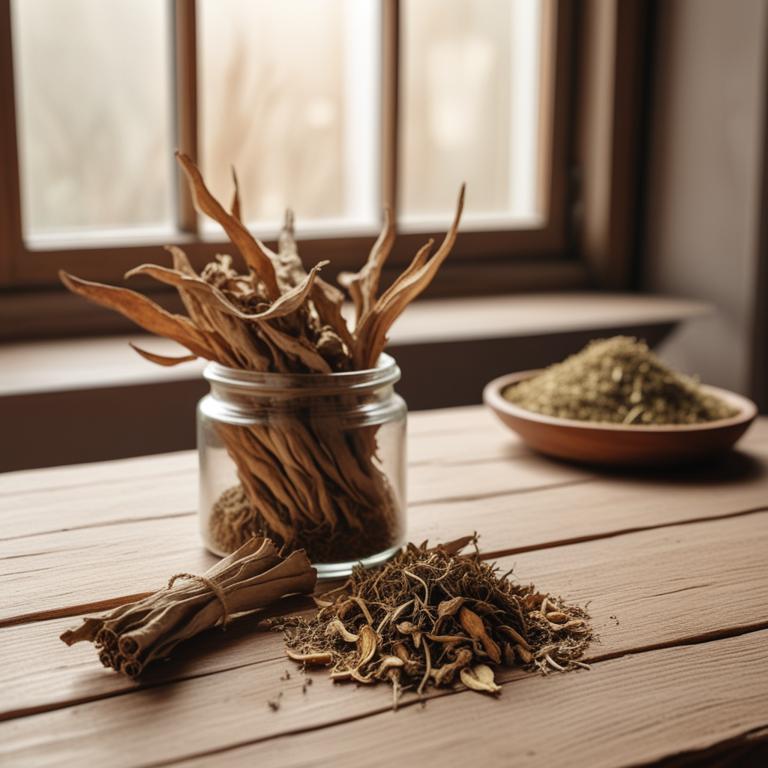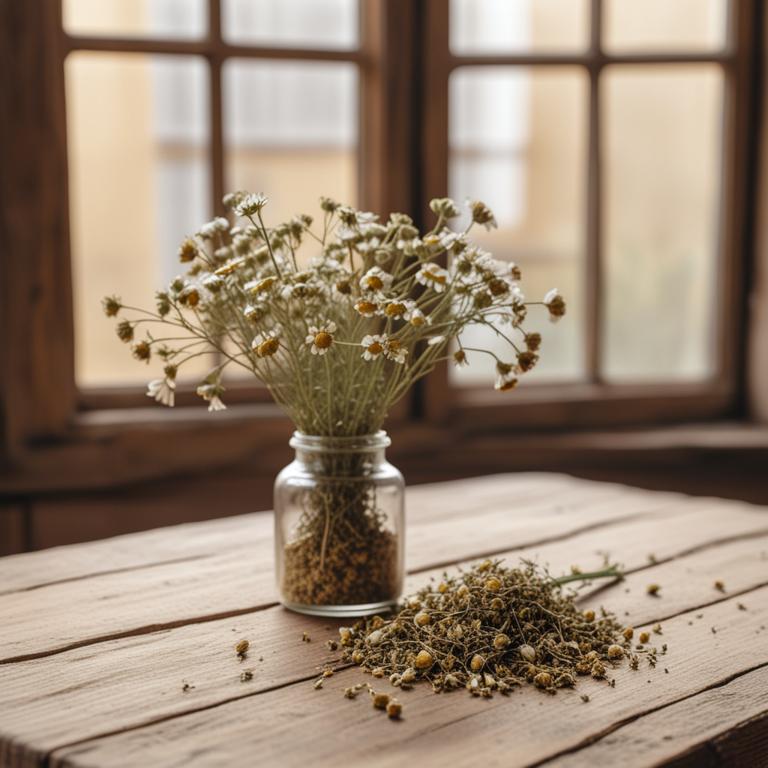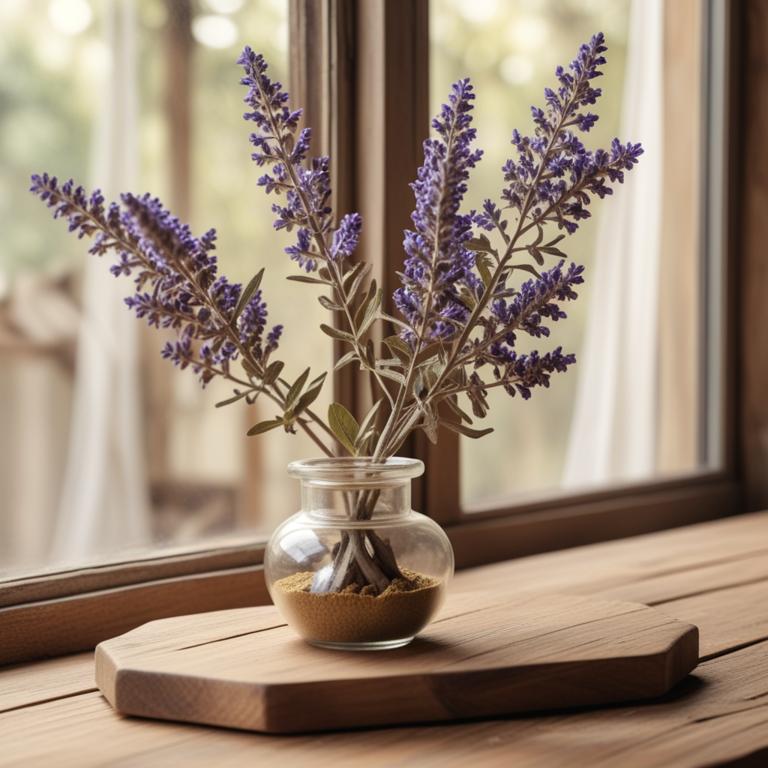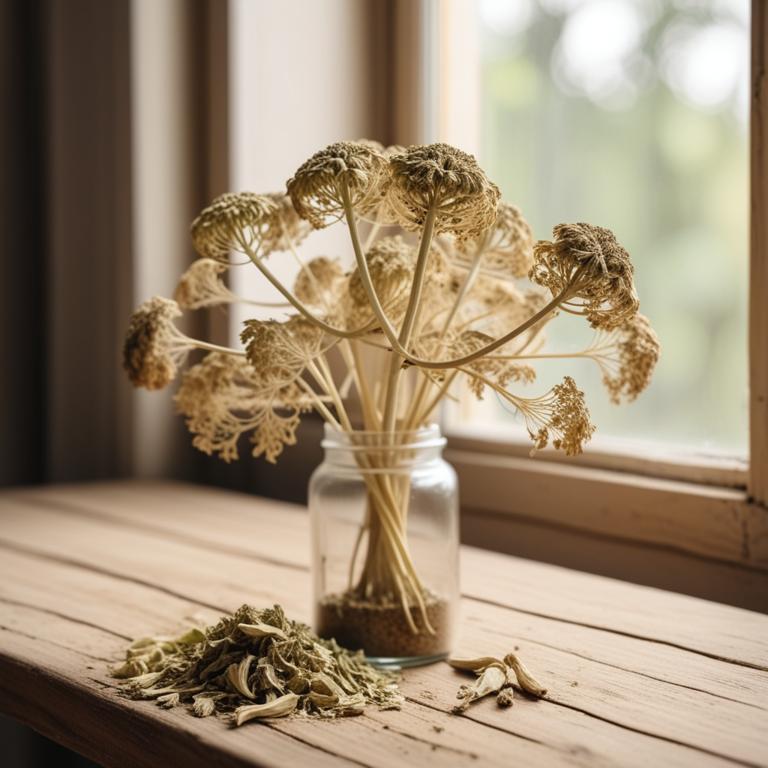Updated: Dec 1, 2024
The Menopause Guide: Causes, Herbs, and Herbal Preparations
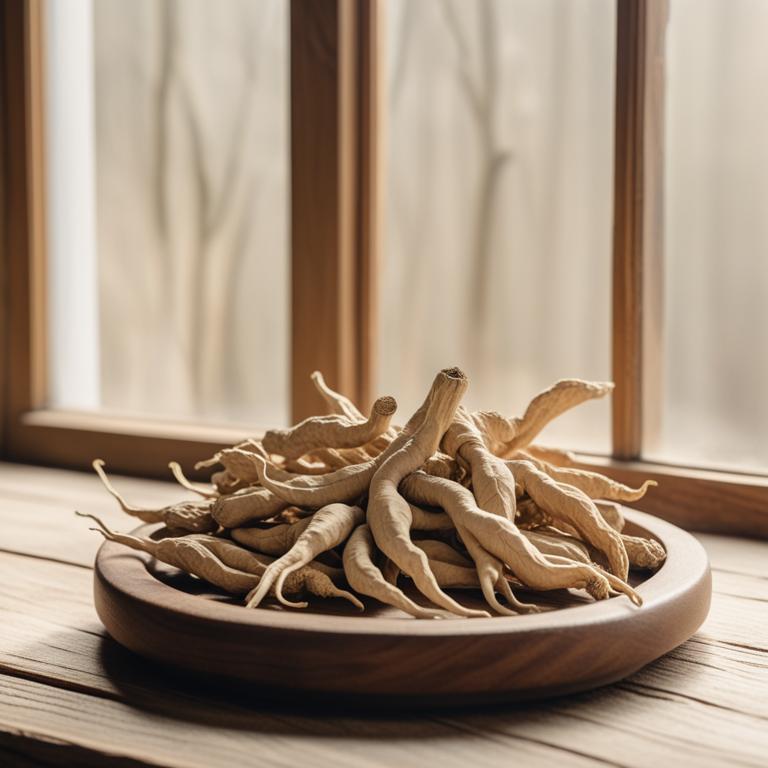
Menopause is a natural life change that happens in women, usually between the ages of 45 and 55, when the ovaries stop producing eggs and hormone levels decrease.
This shift can bring about various symptoms, such as hot flashes, mood swings, and sleep disturbances, which can affect daily life and relationships. The causes of menopause are not fully understood, but it's believed to be a natural process that occurs when the ovaries run out of eggs, or when the pituitary gland produces less follicle-stimulating hormone (FSH). To alleviate these symptoms, many women turn to herbal remedies. One of the most popular herbs for menopause is black cohosh, which has been used for centuries to relieve hot flashes and night sweats.
The root of the black cohosh plant contains compounds that may help reduce inflammation and improve sleep quality. Other herbs, such as dong quai and red clover, have also been used to ease menopausal symptoms, particularly those related to mood and hormone balance. To use these herbs, women can try various preparations, such as teas, capsules, and tinctures. Black cohosh tea, for example, can be made by steeping the dried root in hot water, while dong quai tea can be brewed from the dried root of the plant. Some women also take black cohosh capsules or tinctures, which can be purchased at health food stores or online.
It's essential to consult with a healthcare provider before using any herbal remedies, especially if you're already taking medication or have underlying health conditions.
Table of Contents
- What causes the natural process of menopause?
- What advantages can herbs provide during the menopause stage?
- What are the primary medicinal herbs used in menopause treatment?
- What are the most popular herbal supplements for menopause?
- What herbs are contraindicated for individuals experiencing menopause?
- FAQ
What causes the natural process of menopause?
The main causes of menopause are a combination of biological, hormonal, and medical factors.
One of the main causes is genetic predisposition, which means that your family history plays a role in when you experience menopause. If your mother or grandmother went through menopause early, you may be more likely to experience it early too. Hormonal imbalance is another cause of menopause. As we age, our ovaries gradually produce less estrogen, a hormone that helps regulate our menstrual cycles. When estrogen levels drop, it can disrupt our menstrual cycles and eventually lead to menopause.
Aging is also a natural cause of menopause, as our ovaries naturally slow down with time, leading to a decline in estrogen production. Ovulation failure is another key factor in menopause. When the ovaries stop releasing eggs, it's a sign that menopause has begun. This can happen due to a range of factors, including age-related wear and tear on the ovaries. Hysterectomy, or the surgical removal of the uterus, can also lead to menopause if the ovaries are also removed during the surgery.
This is because the ovaries are responsible for producing estrogen, and without them, estrogen levels drop, leading to menopause.
What advantages can herbs provide during the menopause stage?
Using certain herbs during menopause can be very helpful.
These herbs can ease symptoms like hot flashes and night sweats. They can also help reduce anxiety and depression, which are common during this time. Some herbs can even help with sleep problems, allowing women to get a good night's rest.
Additionally, these herbs may help with hormonal balance, reducing symptoms like mood swings and irritability. Some herbs may also help with weight gain and osteoporosis, which are common concerns for women during menopause. Furthermore, they can be a natural alternative to prescription medications, reducing the risk of side effects.
Many women find that using these herbs helps them feel more in control and empowered during this transition.
What are the primary medicinal herbs used in menopause treatment?
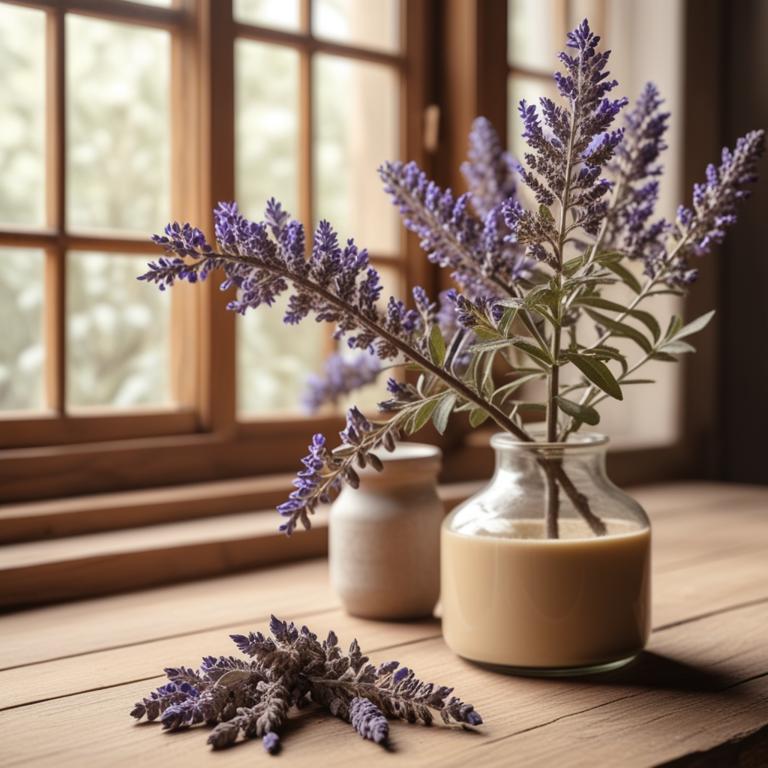
Menopause is a natural life change that affects many women.
Herbs can be a helpful addition to traditional treatments, providing relief from common symptoms like hot flashes, mood swings, and sleep problems. Vitex agnus-castus, also known as chasteberry, helps to regulate hormones and ease menstrual cramps. This makes it a great choice for women who are experiencing irregular periods or heavy bleeding. Glycyrrhiza glabra, or licorice root, soothes the stomach and reduces inflammation. This can be especially helpful for women who experience heartburn or digestive issues during menopause.
Cimicifuga racemosa, or black cohosh, is a well-known herb for menopause relief. It eases hot flashes and night sweats, and also helps to reduce stress and anxiety. Angelica sinensis, or dong quai, is a Chinese herb that promotes circulation and eases menstrual cramps. It's also known to help with fatigue and weakness, common complaints during menopause. Avena sativa, or oat straw, is a gentle herb that promotes relaxation and eases sleep problems. It's also known to reduce stress and anxiety, making it a great choice for women who are experiencing mood swings.
These herbs are not meant to replace traditional treatments, but can be a helpful addition to a woman's menopause management plan.
What are the most popular herbal supplements for menopause?
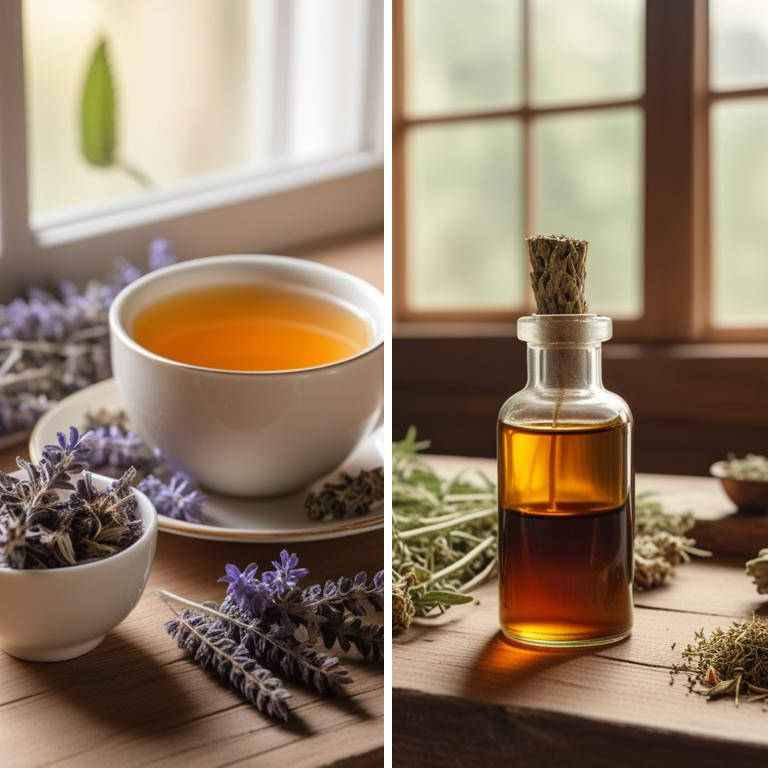
Menopause can be a challenging time, with hot flashes, mood swings, and sleep problems.
But herbal preparations can provide some relief. One option is taking a capsule filled with dried herbs like black cohosh or red clover. These herbs have been shown to reduce hot flashes and night sweats in some women. The capsules are easy to take and can be a convenient way to get the benefits of the herbs. Another way to use herbs is to make a decoction. This is a liquid solution made by steeping herbs in hot water. Decoctions are great for women who want to take a more natural approach to managing their symptoms. Herbs like ginseng and licorice root can be used to make a decoction that may help with mood swings and sleep problems. Herbal teas are also popular during menopause.
They're easy to make and can be a soothing way to calm hot flashes. Peppermint and chamomile teas are often recommended for their calming effects. Some women prefer to take herbs in a tincture form. A tincture is a liquid extract of herbs that can be taken in a few drops. Tinctures are great for women who don't like taking pills or capsules. Herbs like valerian root and passionflower can be used to make a tincture that may help with sleep problems and anxiety. Lastly, some women find suppositories helpful during menopause. These are small tablets that are inserted into the vagina to provide relief from vaginal dryness and itching. Herbs like wild yam and aloe vera can be used to make suppositories that may help with these symptoms. Herbal preparations can be a helpful addition to traditional treatments for menopause symptoms.
They may provide some relief from hot flashes, mood swings, and other symptoms.
Additional Resources:
What herbs are contraindicated for individuals experiencing menopause?
If you're going through menopause, it's a good idea to be careful with some herbs that might not be suitable for you.
Paeonia lactiflora, also known as peony, is a plant that can stimulate the uterus, which may cause problems if you're experiencing heavy bleeding or clotting issues during menopause. Panax ginseng, or Asian ginseng, can affect hormone levels in your body, which might worsen symptoms like hot flashes and mood swings.
Catha edulis, or khat, is a plant that contains a stimulant called cathinone, which can increase anxiety and stress, making menopause symptoms even harder to manage. Pueraria mirifica, also known as white Kwao Krua, contains phytoestrogens, which can interact with your body's natural hormone production and cause more problems. Ephedra sinica, or ma huang, contains a stimulant called ephedrine, which can increase heart rate and blood pressure, and may not be safe for women with heart conditions or high blood pressure during menopause.
These herbs might not be the best choice for you, especially if you're experiencing unusual symptoms or taking medications for menopause.
FAQ
Are there any specific herbs that can prevent menopause?
Some herbs like black cohosh and red clover have been studied for their potential to ease menopause symptoms.
They may help reduce hot flashes and night sweats. However, the evidence is not clear, and more research is needed.
These herbs may also have benefits for bone health, but their effectiveness in preventing menopause is uncertain.
Is it safe to use herbal remedies for menopause during pregnancy?
Using herbal remedies for menopause during pregnancy is not recommended.
Some herbs can affect the baby's development or cause complications. For example, black cohosh and red clover may affect blood pressure or interact with other medicines.
It's best to avoid them during pregnancy and stick to natural remedies that have been proven safe.
Are there any herbs that can reduce the frequency of menopause?
Some herbs like black cohosh, red clover, and Dong Quai are studied for their potential to help reduce menopause symptoms.
Black cohosh may help with hot flashes, while red clover is thought to support hormone balance.
Dong Quai is believed to ease menstrual cramps and other symptoms associated with menopause.
Can i combine different herbal remedies for menopause?
You can combine different herbal remedies for menopause, but be cautious.
Some herbs can interact with each other or with other supplements.
For example, black cohosh and red clover may help with hot flashes and bone health, but combining them with evening primrose oil could increase the risk of bleeding.
Related Articles
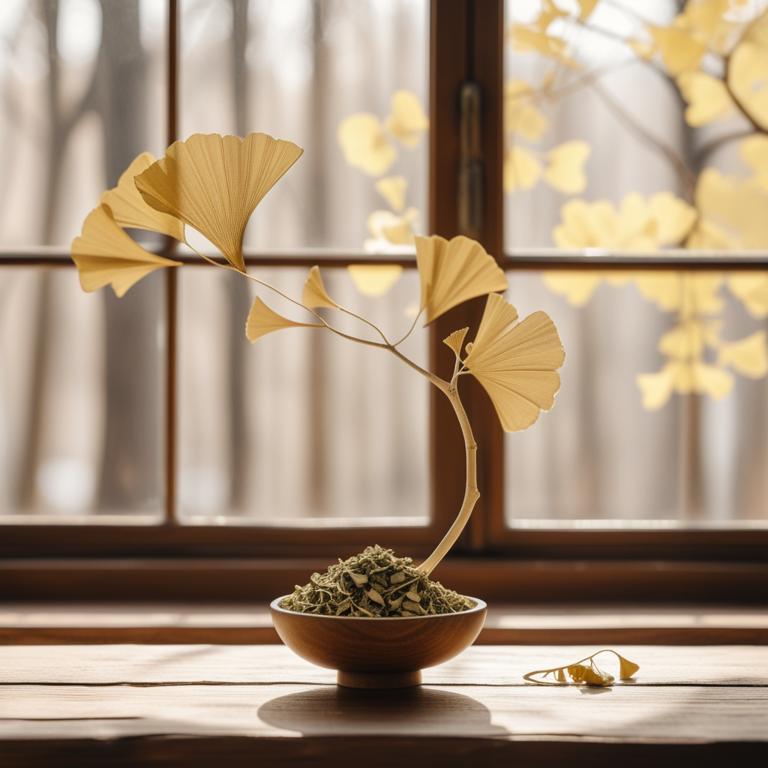
The Causes and Natural Relief of Ovulation Pain
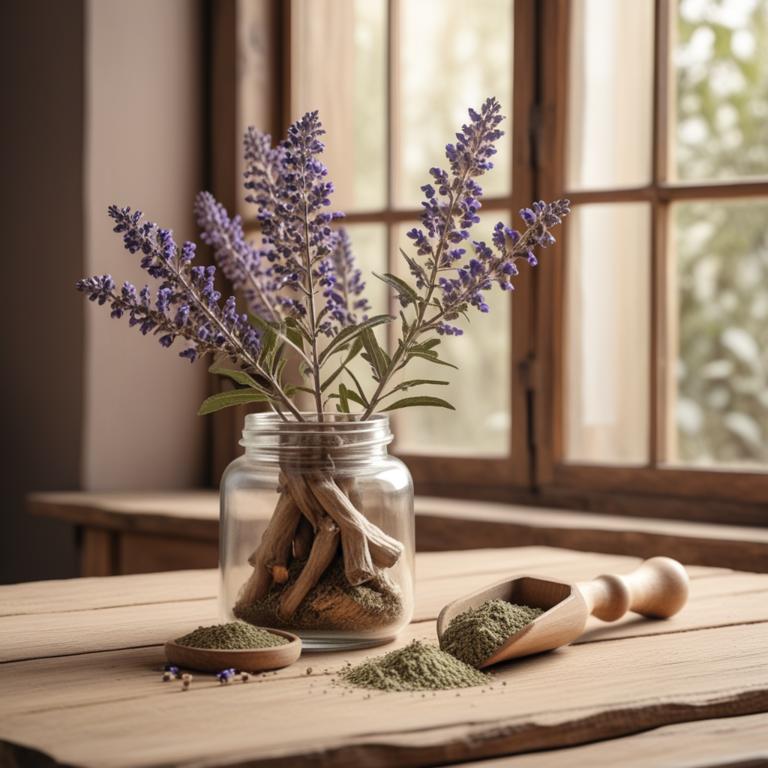
Fibrocystic Breast Disease Treatment: Causes and the Role of Medicinal Herbs
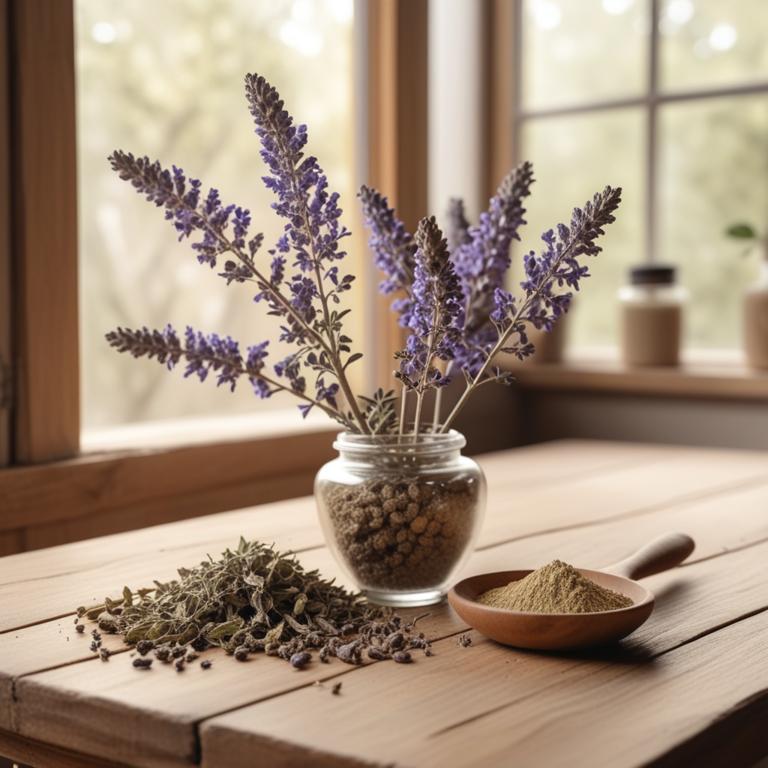
Overcoming Premenstrual Syndrome: Causes and Effective Herbal Remedies
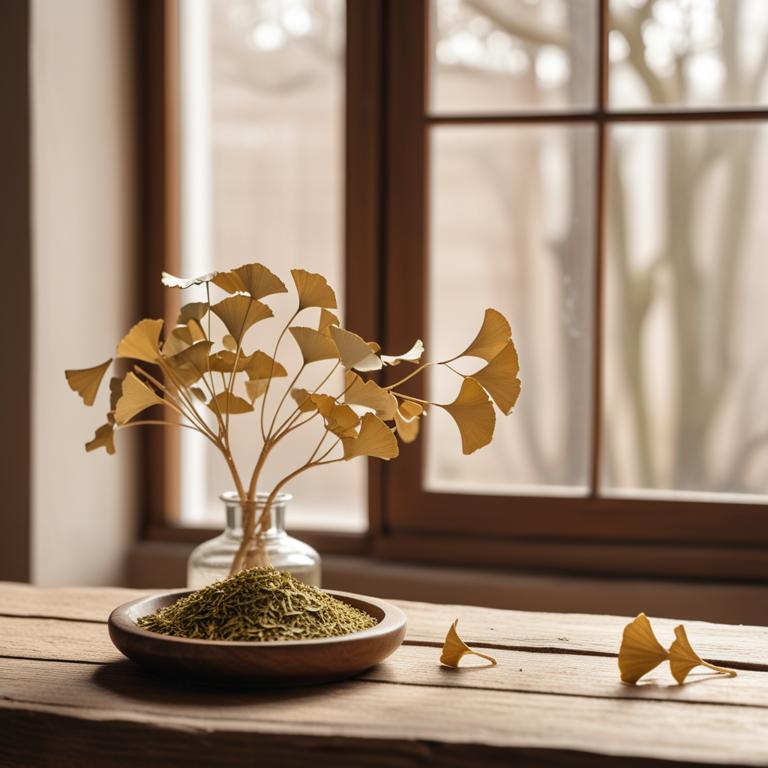
Amenorrhea Causes, Symptoms, and Treatment with Medicinal Herbs
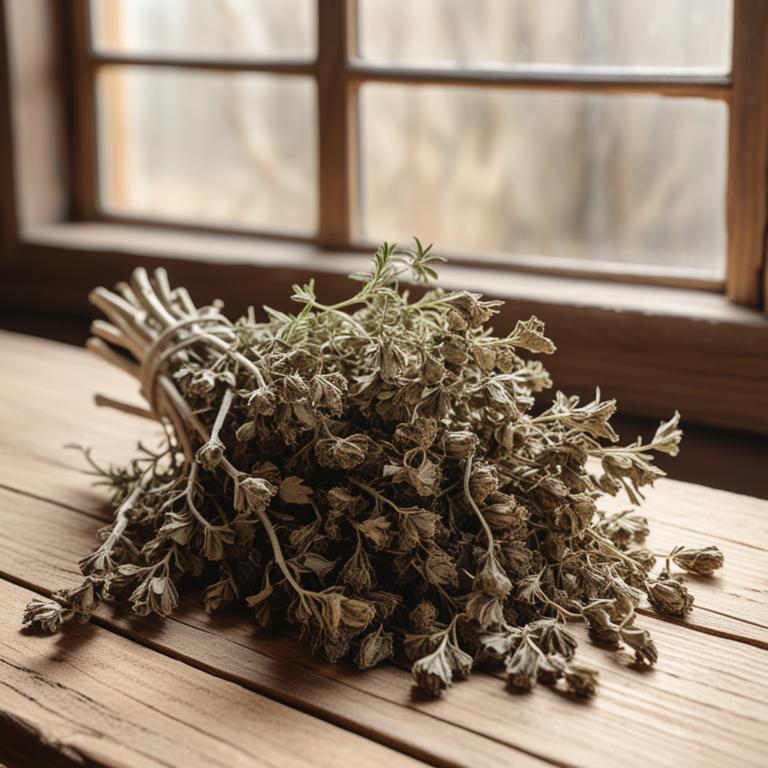
Low Sperm Count: Exploring the Reasons, Herbal Solutions, and Preparations
